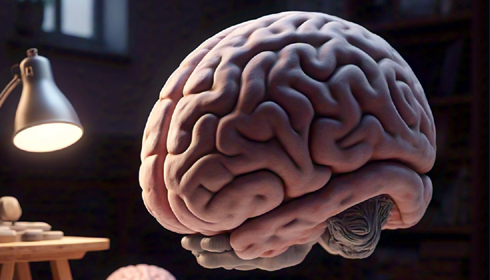
Exercise and Healthy Habits Can Keep Your Brain Young, Says New AI-Powered Study
Researchers at Sweden's Karolinska Institute have developed an artificial intelligence (AI) tool that uses MRI scan data to determine the biological age of the brain. Researchers evaluated this tool on 739 healthy 70-year-olds and found encouraging relationships between lifestyle, health issues, and brain ageing. The study, which recently appeared in Alzheimer's & Dementia: The Journal of the Alzheimer's Association, sheds new light on how certain health variables might make a brain appear biologically older or younger than its true age.
The AI system calculates what academics call the "brain age gap." This gap is the discrepancy between the person's estimated biological brain age and their actual chronological age. If the biological brain age is more than the actual age, it signals that the brain is ageing more quickly than usual. Conversely, a lower biological brain age indicates that the brain is ageing more slowly. On average, the AI calculated participants' brain ages to be around 71 years old, which nearly matched their actual age of 70. However, discrepancies emerged when researchers looked at individual health and lifestyle characteristics.
The study found that certain health issues, such as diabetes, stroke, and chronic inflammation, were associated with older-looking brains. The study linked faster brain ageing to high glucose levels and cerebral small vessel disease, which disrupts blood flow in the brain. These findings imply that poor blood circulation and high blood sugar levels can have a deleterious influence on brain function, increasing the likelihood of cognitive decline over time.
Participants who lived a healthy lifestyle, particularly those who exercised regularly, had biologically younger brains. Exercise improves blood circulation, decreases inflammation, and regulates blood sugar levels, all of which are essential for brain function. The researchers found that maintaining healthy blood vessels through physical activity and adequate food may be critical to decreasing brain ageing and lowering the chance of dementia.
Lead researcher Anna Marseglia underlined the study's significance, saying that while new Alzheimer's medications are becoming accessible, they may not be effective for all patients. As a result, knowing how lifestyle and vascular health influence brain resilience is critical. Brain resilience refers to the brain's ability to resist injury while still working normally. Inflammation and high glucose levels can reduce resilience, but exercise and healthy behaviours can boost it.
Eric Westman, a professor of neurogeriatrics at the Karolinska Institute, stated that the AI system is both exact and user-friendly. Although it is primarily a research tool, the long-term goal is to adapt it for therapeutic use, notably in the diagnosis of dementia and other cognitive problems. The researchers also obtained blood samples from subjects to assess lipids, glucose, and inflammatory markers. These tests, along with lifestyle data, helped to validate the relationship between health issues and brain age.
Another intriguing result was that the factors that influence brain ageing may differ between men and women. The researchers intend to investigate this further by looking at biological variations, such as hormone levels, as well as sociocultural aspects, such as social involvement and support networks. They hope that understanding how men and women develop brain resilience may lead to more personalised dementia prevention measures.
Next year, the team intends to conduct a new study on how social health affects brain resilience. Social health considerations include remaining socially connected, receiving assistance from others, and participating in community activities. The project will also investigate how stress and sleep patterns influence brain ageing, with a focus on women's health. Understanding the particular elements that affect women's brain health is crucial, as they live longer lives and are more likely to develop dementia.
This study provides hope for better brain health through lifestyle adjustments. It demonstrates that even in old age, adopting healthy practices can prevent brain ageing and possibly lower the chance of dementia. As the AI technology improves, it may potentially assist doctors in identifying individuals at increased risk of cognitive deterioration early on, allowing for prompt intervention.